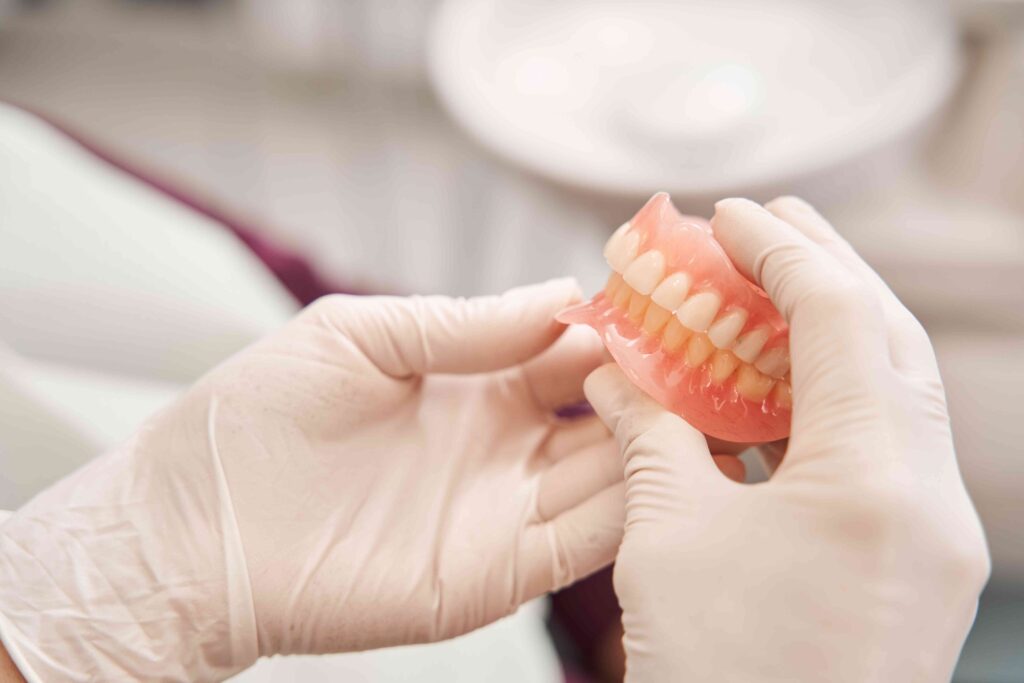
Modern dentures aren’t like the ones that your grandparents used to wear. Today, they are customized for each patient, restoring the appearance and function of the teeth. Since dentures are personalized just for you, you may be wondering why yours keeps popping out of place. Denture wearers tend to experience this issue more commonly with lower dentures than upper ones. Continue reading to learn why this can happen and what you can do about it.
Why Is My Lower Denture Unstable?
There are various issues that can result in your lower denture not staying in place. Here are some of the common ones:
- Flat/Negative Ridge: If you have adequate bone height and width, your lower denture is more likely to stay in place. This is especially the case if your lower ridge is U-shaped. However, if you have been missing teeth for many years or have a flat jawbone, the lower denture has a harder time staying in place.
- Inadequate Denture Border Length: The sides of the denture are called “borders.” The borders need to be the proper length and width to create a good deal.
- Lack of Saliva: A major factor in denture retention is saliva. Saliva helps the denture to stay suctioned to the gums. If you don’t have enough saliva in your mouth, or yours is too thick, you may experience more difficulty.
- Impatience: Wearing dentures takes some time to adjust. You won’t be an expert right away. By taking the time to adapt to them and how they function, you are more likely to have success.
3 Ways to Improve the Stability of Your Denture
- Reline: Relines are sometimes needed to readapt the base of your denture to your ridge anatomy. The mouth is constantly changing, so your dentures need to be reshaped every few years to continue to fit well.
- Denture Adhesive: Using a small amount of denture adhesive helps to keep the denture in place. Remember that when it comes to denture adhesive, more product isn’t better. If your dentures aren’t staying in place with a minimal amount of adhesive, you may need a reline.
- Practice: Time and patience are necessary as you adjust to new dentures. It is important to train the muscles of your face and tongue to get used to them. Be sure that you always chew on both sides of your mouth evenly to avoid excessive pressure on one side. You also may want to try to rest your tongue in a different position in your mouth to avoid dislodging your denture.
If your denture isn’t fitting like it used to, let your dentist know. They will be able to help your replacement teeth fit more comfortably in your mouth.
About the Practice
At Denta Crafters, Dr. Nada Elsadig and Dr. Lan Duckett work together to treat patients in the Falls Church community. If you have concerns regarding your dentures, they would be happy to take a look. For more information or to schedule an appointment, visit their website or call (703) 241-5775.
